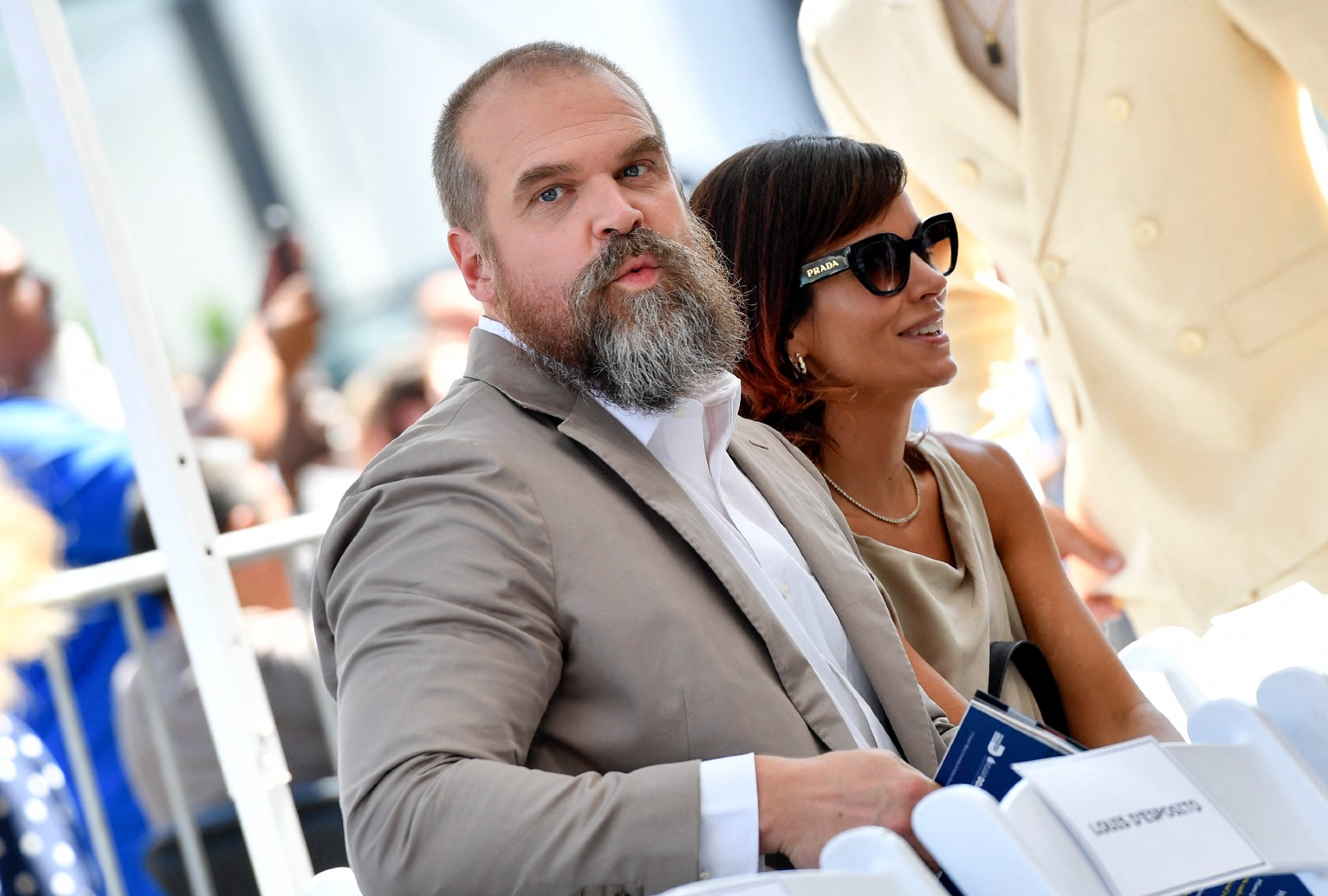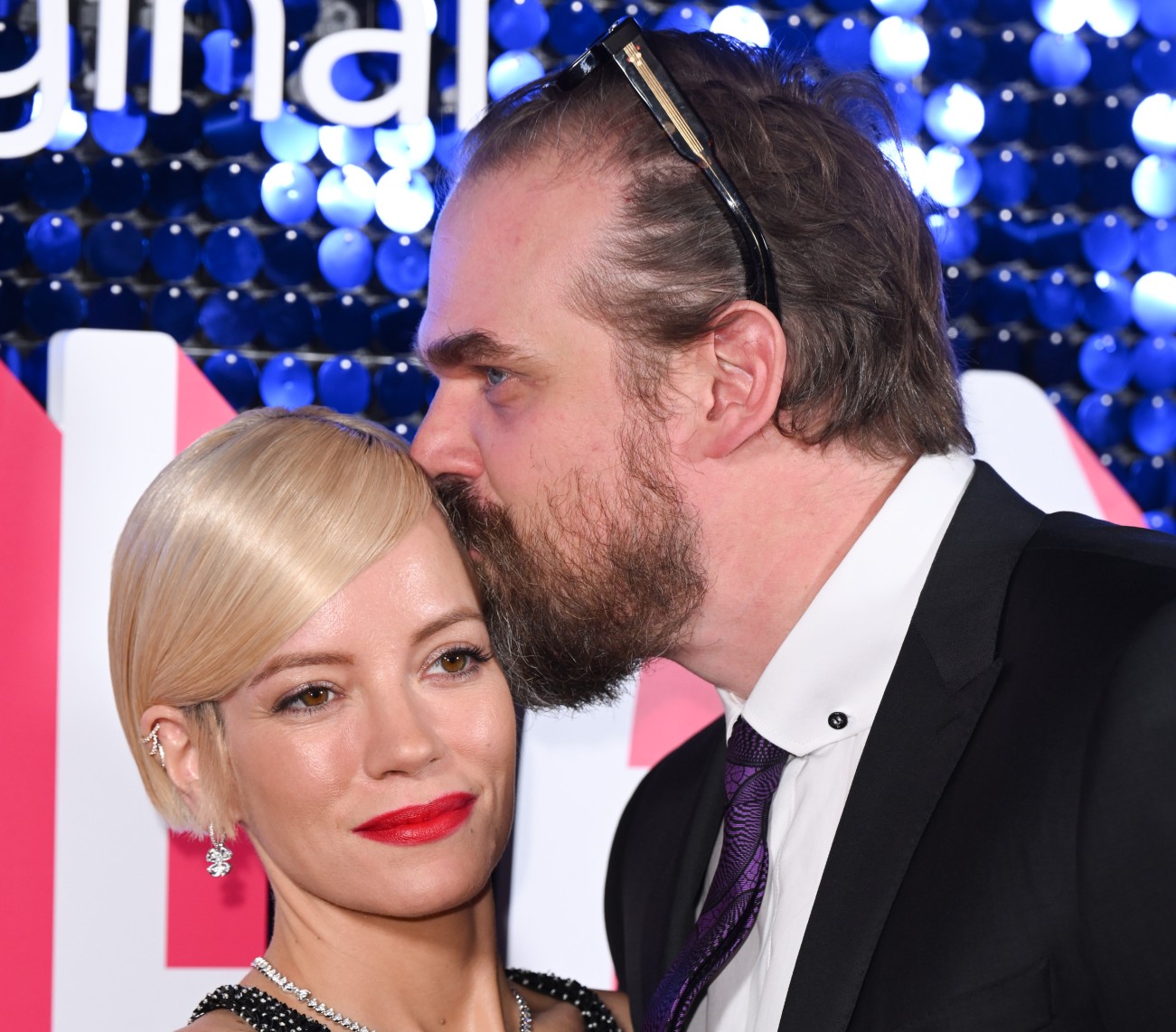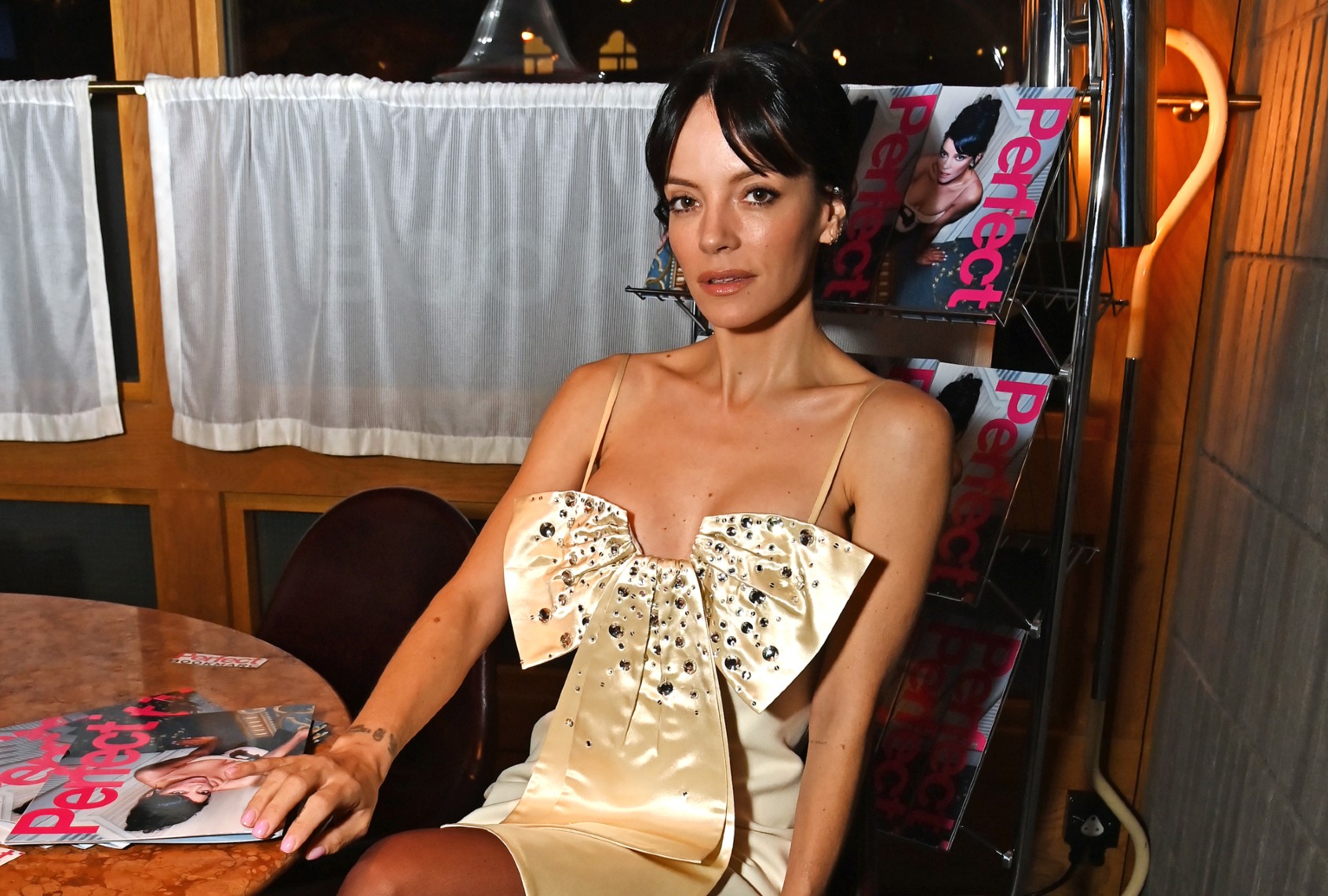Lily Allen is no tragic figure. From the moment her Primark trainers kicked open the door with her 2006 debut, “Alright, Still,” the singer’s acid-tongued, deceptively cheery kiss-offs to exes and diaristic musings about life and love painted her as an empowered figure, taking what she wants and writing about the rest. Three more records of varying quality, two children, two marriages, a memoir, an OnlyFans solely for foot pics, plenty of scandal and years of sobriety all followed. And through it all, Allen never played the victim. Despite all of her misfortunes, self-inflicted or otherwise, Allen held her head high, beating the notoriously brutal British tabloids at their own game — or, at the very least, becoming a formative opponent.
But on her new album, “West End Girl,” Allen is neck-deep in a tragedy, attempting to keep her head above the all-consuming black sludge of inconceivable heartbreak. Recounting the slow dissolution of her marriage to “Stranger Things” and Marvel star David Harbour, the album finds Allen at her most raw, a curious state for an artist who has never once shied away from telling the world exactly how she feels at any given moment. For Allen, the album is breaking new ground, earning her best reviews in over a decade and thrusting an aughts-era, MySpace-born superstar into a new echelon of fame, capturing the attention of listeners who weren’t even born when she debuted. But for Harbour, the album is presumably nothing short of a public relations nightmare, and not just the kind where a celebrity has to turn off their Instagram comments. “West End Girl” portrays its unnamed muse as an uncaring, envious philanderer whose deception breaks so many marital vows that the couple decides to open their marriage, albeit with some stipulations, before ultimately shattering those rules too. With every sordid detail Allen reveals, you can almost hear a publicist’s fingers furiously tapping at the keys, adding “absolutely no personal questions” to emailed interview confirmations ahead of the upcoming final season of “Stranger Things.”

(VALERIE MACON/AFP via Getty Images) David Harbour and Lily Allen attend the Star ceremony for Kevin Feige in Hollywood, California, on July 25, 2024.
While Allen has never shied away from doling out the particulars of her life, her penchant for radical honesty on “West End Girl” turns the dissolution of her marriage into a mutually involved process. Overnight, it seemed everyone was a CIA-trained body language expert, and Allen’s divorce suddenly became the public’s divorce.
However, a curious ripple arose online over the album’s release weekend. After about 36 hours of near-unanimous adulation for Allen and “West End Girl,” with everyone from your older sister to Gwyneth Paltrow posting praise for the album, the tides started to turn. Across social media, users dug up Allen’s past offenses: Twitter rows with rapper Azealia Banks, one-sided kisses with Zoë Kravitz and other questionable behavior from Allen’s long life in the public eye. Like many mass cultural events in this thoroughly modern world, how much any given listener enjoyed “West End Girl” quickly became a definitive statement of their morality — ironic, considering that Allen’s album is all about personal integrity. But whether a listener calls for a boycott of Harbour’s projects or a kibosh on Allen’s music, they’re playing into Allen’s hand. By being her usual, frank self in an era when a person’s overall goodness is determined by a swift glance at their ethical track record, “West End Girl” challenges our contemporary desire to find the villain in every story. It’s not that Allen thinks she’s immune to criticism, but that she understands human behavior is far more unpredictable and messy than the internet’s echo chambers allow for. By sparing no details, Allen’s rewritten the rule book for a new age. On “West End Girl,” there are no villains, only stories.
One such tale, the record’s opening title track, finds Allen narrating the inflection point in her marriage with sing-songy panache. In 2021, one year after her marriage to Harbour at a chapel in Vegas, Allen was cast in the play “2:22: A Ghost Story,” making her theater debut in London’s West End district. “I said, ‘I got some good news, I got the lead in a play,” Allen sings over a bossa nova-meets-elevator muzak instrumental. “That’s when your demeanor started to change, you said I’d have to audition, I said, ‘You’re deranged.’” Allen spends the next few bars remembering how strange she found this interaction, but brushes it off, welcoming her new life as an actress with open arms until the song is interrupted by a phone call. This is perhaps one of the album’s most important moments, in that the listener only hears Allen’s side of the conversation, never the voice that is ostensibly giving her some heartwrenching news on the other end of the line. “OK, I mean it doesn’t make me feel great…,” she begins. “If that’s what you need to do, then, I guess … Well, how would it work?”
Is this a confession of infidelity? Is the silent party asking for an open relationship? Whatever arrangement Allen is making over the phone, we don’t need to know about it. The listener isn’t supposed to know, and the minute details don’t matter. What’s important is that someone is hurt. A line has been crossed, and two people in a once-committed, monogamous relationship find themselves at odds while living in entirely different parts of the world. That is all the information we need to process the events of the album’s front half, which focuses on the juicier, jaw-dropping bits of this story. (And, for what it’s worth, a press release stated the album is a “mixture of fact and fiction,” with Allen further clarifying that some could be considered autofiction, and written in character.) In “Tennis” and its immediate follow-up, “Madeline,” Allen remembers finding messages on her husband’s phone from a mystery woman, and spends the latter track sardonically mimicking Madeline’s faux shock that Allen didn’t know about their affair. In the album’s centerpiece, “P*ssy Palace,” she recounts going to her husband’s apartment in New York, only to find that he’d been using it for afternoon delights and not as a dojo, like she thought — a lyric that immediately raised eyebrows, given Harbour’s jiu-jitsu training.
Start your day with essential news from Salon.
Sign up for our free morning newsletter, Crash Course.
This detail points to Allen’s gleeful invitation for the listener to peer deeper. While Allen has never shied away from doling out the particulars of her life, her penchant for radical honesty on “West End Girl” asks her audience to look for Easter eggs, turning the dissolution of her marriage into a mutually involved process, almost a game. Listeners spent the weekend looking for clues in the couple’s “Architectural Digest” home tour and their red carpet appearances. Overnight, it seemed everyone was a CIA-trained body language expert, and Allen’s divorce suddenly became the public’s divorce. But those running to pick a side missed the point Allen makes on “Ruminating,” a frenetic song about being stuck in an anxiety spiral. Through lyrical repetition and dizzying drum and bass production, Allen evokes panic but constantly reminds us that, even if the episode was cruelly brought on by someone else’s actions, these feelings of fear are her own. She’s not a victim; she is merely a woman trying to cope with love’s emotional hazards.

( Karwai Tang/WireImage/Getty Images) Lily Allen and David Harbour attend the “Dreamland” Special Screening on March 30, 2023 in London, England
The public wants a villain; they’re desperate for one, and they’ll do anything to find someone to hang a narrative onto, despite Allen already taking care of that herself. Tabloids haven’t been dying out in the 20 years since Allen’s debut, they’ve just been democratized to anyone with an internet connection.
Such is the risk of making art that is so fiercely honest. An album like “West End Girl” is a double-edged sword, enticing audiences to relate to Allen’s vulnerability, but also letting them project their own experiences onto the artist’s, thus intensifying a listener’s reaction. That Allen’s LP can generate this response so quickly and so easily — especially among American audiences and a younger generation who didn’t grow up with her music — speaks to the power of authenticity. It also suggests that we are living in a time when many people don’t know what to make of such authenticity. That the response to “West End Girl” was to immediately vilify Harbour and equate his purported sins to fireable offenses is troubling, but not surprising. We live in an age when morality is commodified. Perceived “goodness” is a currency that the public can (or, at least, try to) give or take away at will. The problem is that this is simply not how reality works, and certainly not how human beings are programmed. Making mistakes is a part of life, and so is hurting people. None of us gets out without doing some damage to someone else’s heart, no matter how upstanding we think we may be. Understanding what your individual picture of happiness looks like takes trial and error. But grace is rarely doled out in the court of public opinion.
We need your help to stay independent
Then come the thinkpieces — and yes, you could say this very piece you’re reading isn’t exempt from that label — and the gossipy screeds. Reports of the “real Madeline” speaking out, and the Daily Mail sourcing anonymous friends of Harbour that remind readers, “Lily’s no angel,” as if she ever once pretended to be. It all feeds the parasociality machine, making TikTokers think they’re Hercule Poirot, only with a more ironic mustache. Even though the album’s back half is far more introspective, with Allen removing her foot from her subject’s neck for a bit, many listeners seem to be taking it all as gospel while ignoring how much the singer lampoons herself in the mix. The public wants a villain; they’re desperate for one, and they’ll do anything to find someone to hang a narrative onto, despite Allen already taking care of that herself. Tabloids haven’t been dying out in the 20 years since Allen’s debut; they’ve just been democratized to anyone with an internet connection.
It’s funny, then, that the people nosing their way past the lines Allen draws and into her personal life are the same ones hoping for Harbour and Allen to be symbols of morality. “West End Girl” asks many questions in 44 minutes, but perhaps the most important thing it asks of the viewer is to examine the way they perceive art. Here, Allen demands the listener take stock of how much they connect themselves to a piece of art, and to wonder if it can’t also be unhealthy for us to invest so deeply into someone else’s experience, even if it might mirror our own. Can we be as co-dependent with art as we can with another human being? “West End Girl” and the public’s ensuing reaction posit that it might be possible. The album is so unassailably terrific that it creates a challenge for the starry-eyed, internet-minded listener, who believes artistic merit is proven by someone else’s ethical purity. But Allen isn’t asking for her ex to lose work, and she’s not on an apology tour for her past mistakes, either. Like any true artist, she’s doing something far more difficult to pin down, and therefore, inherently interesting. Allen made her statement. How everyone else responds is their choice.
Read more
about celebrity couples


